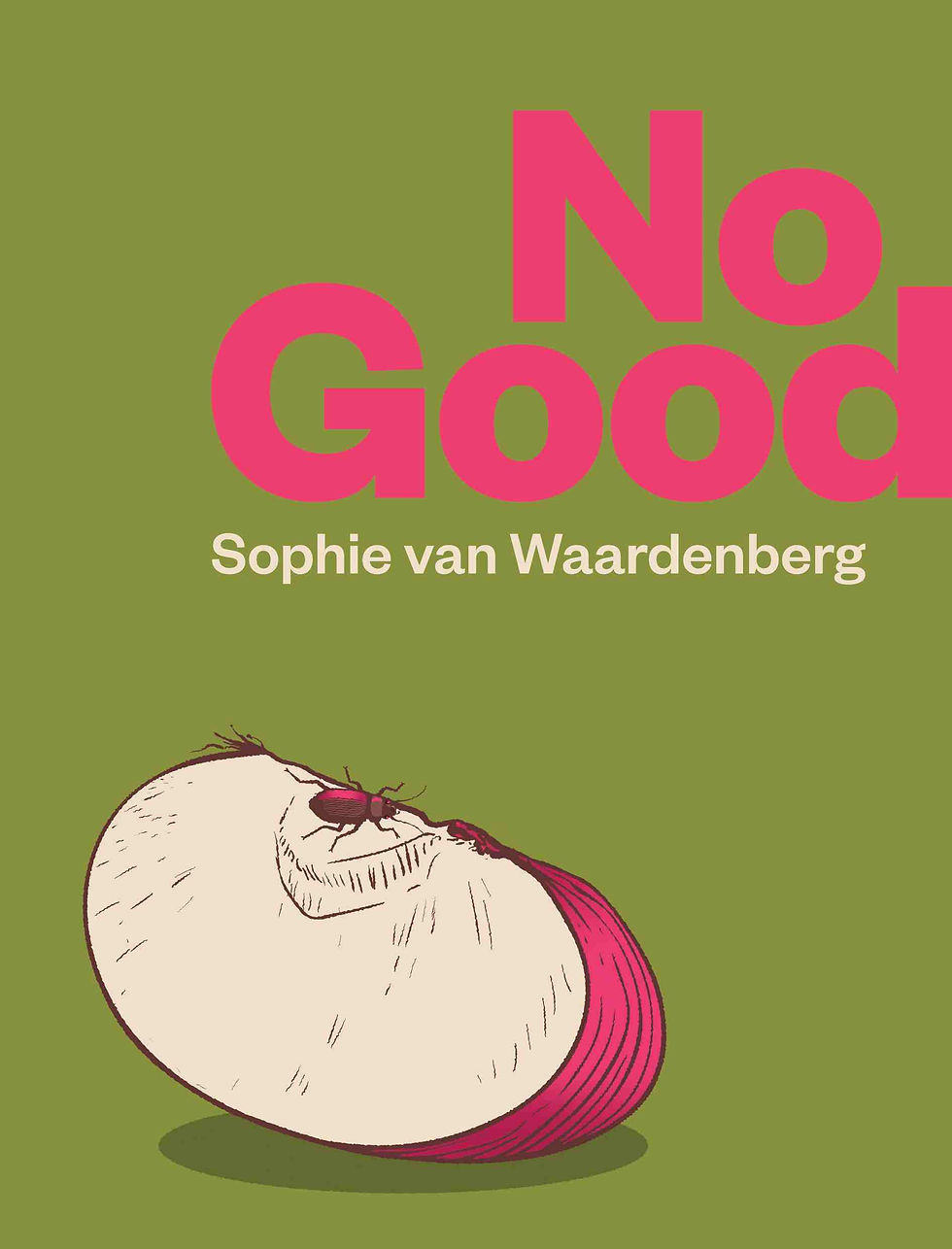Interview: Sophie van Waardenberg talks about No Good
- NZ Booklovers

- Aug 25, 2025
- 3 min read

Sophie van Waardenberg is a writer from Tāmaki Makaurau. She holds an MFA from Syracuse University where she was editor-in-chief of Salt Hill Journal.
Her first chapbook, ‘does a potato have a heart?’, was published in AUP New Poets 5 (2019). Her poems about eating carbohydrates and kissing girls can be found in Cordite, Sweet Mammalian, The Spinoff and Best New Zealand Poems.
Tell us a little about No Good.
No Good has these things in it: grief, cats, television, complaining, sapphism, antidepressants, loneliness and eggs. It is, as one of my students once described a poetry book, ‘Just poem after poem after poem’.
What inspired you to write this collection of poetry?
I don’t know. I didn’t really think of the poems as all being part of one collection until I’d written them. The middle chunk of the book is all about my dad, who died when I was thirteen — well, obviously, it’s actually all about me and my grief — and then there’s stuff about leaving places, moving to other places, the Covid-19 pandemic, being in love, being heartbroken, trying to grow up. But if other things had happened then they would be in this book. I don’t feel an urgent need to tell my own story. It’s not an important or interesting story, it’s just the only one I have. So at the risk of being distastefully earnest, what inspired me to write these poems is probably the same as what always pushes me into writing: that other people have made things I think are beautiful, books and films and music that help me to live in the world, and I want to try to do that too.

What was your routine or process when writing this book?
No routine to speak of! But I did get a lot done during my MFA years, and there was a structure, however loose, that came with being a student: I was constantly sharing work with my peers and reading theirs. I had to keep writing when I didn’t want to, and it helped me in a hundred ways to read what my classmates shared with me and to hear how they read my work. The poems saw so many revisions; heaps more poems were scrapped. It took a long time! And in the end I just had to decide to move on from it all — I don’t think I was ever going to feel like it was totally complete.
If a soundtrack were made to accompany this book, name a song or two you would include.
‘Get Me Away From Here, I’m Dying’ by Belle and Sebastian; ‘The Only Thing’ by Sufjan Stevens; ‘Door’ by Caroline Polachek if I’m allowed a third one.
What did you enjoy the most about writing this collection?
I find writing tricky and I’m never quite sure why I keep trying to do it. But sometimes there’s a line or even a pair of words that feels good and right, and I feel as though I have at last properly explained myself, or as though I have made myself a home. The feeling is fleeting so I get a bit obsessed with hunting for it again. I found it a couple of times while I was writing the poems in this book. That was nice.
If you had to choose a favourite poem, what would it be and why did you choose it?From my own book? Right now, probably ‘Self-Portrait as Adolescent Covered in Flour’. I like to remember the feeling of having just written it. I felt like I had the shape right.
If we’re talking about my favourite of all the poems in the world, my basic but correct answer is ‘Having a Coke with You’ by Frank O’Hara.
What did you do to celebrate finishing this book?
After I sent the manuscript off, I took the afternoon off work and bought myself a doughnut. Then once I knew it’d be published, a friend bought a bottle of champagne and we drank it out of silly glasses. I don’t know if I’ve worn out the celebrations yet, though — maybe after the launch?
What is the favourite book you have read so far this year and why?
In January I moved into a new place that didn’t have any internet yet, so naturally I took that chance to read Middlemarch for the first time. Guys, it’s really good.
What’s next on the agenda for you?
Oh, who knows. I’m going to learn to drive (I promise) so maybe I’ll write a longform lyric essay about that whole ordeal. Maybe I’ll just write some more poems.
Auckland University Press



